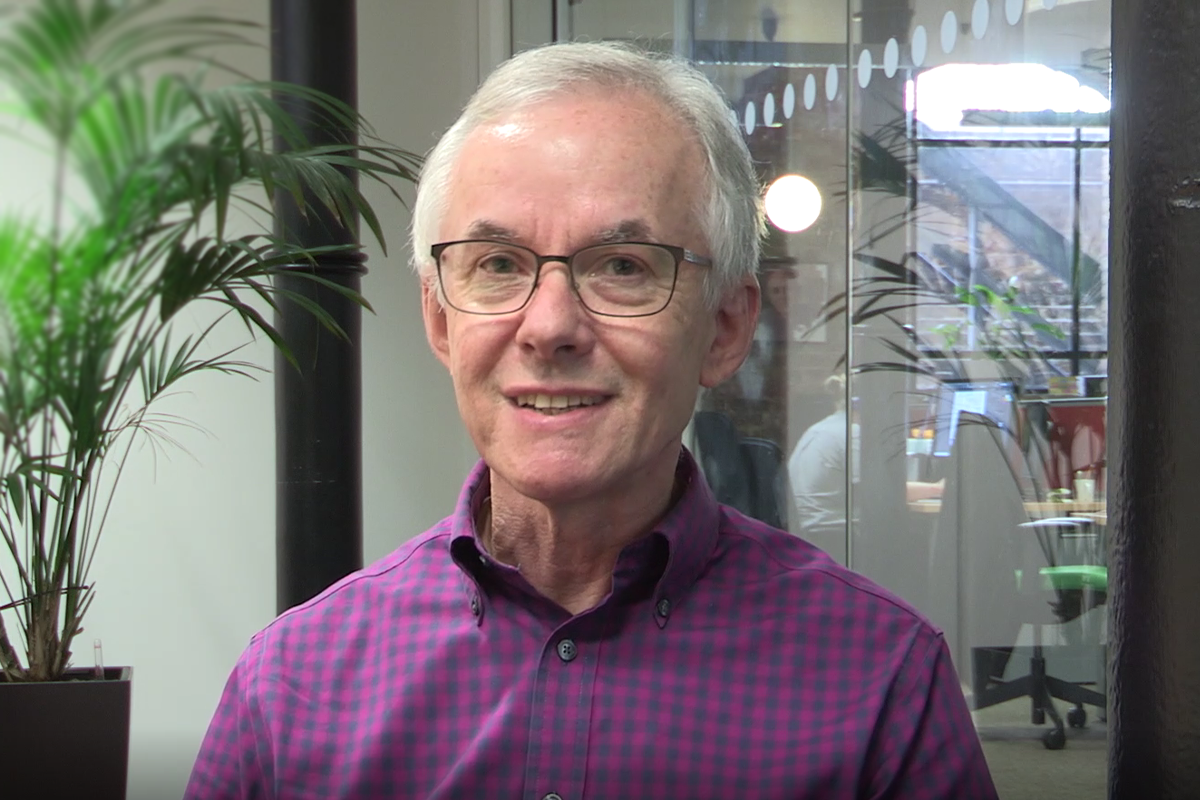
Jeremy Rodell is a volunteer who leads Humanists UK’s dialogue network, which brings people from different humanist and religious communities together in search of common ground. This work builds bridges, develops mutual understanding, and promotes tolerance and good relationships in our communities.
Hi Jeremy! Could you start by saying what you mean by ‘dialogue’?
We’ve defined dialogue as ‘engagement between people with different approaches to life to build mutual understanding, identify common ground and, where it makes sense, engage in shared action.’ In practice it means humanists talking, or working, with people from religious backgrounds. That can cover everything from a public meeting, or a formal ‘interfaith’ event, to an informal encounter, for example, between a humanist and a religious pastoral support person working in a hospital.
How does dialogue differ from having a debate?
The main difference is that in a normal debate, both sides are aiming to score points and ‘win’. You’re only listening to the other person in order to find a chink in their armour which you can exploit. Dialogue is not like that. It isn’t adversarial. There are no winners or losers, and neither side is expecting to ‘convert’ the other, or get them to give up their core beliefs or worldview. Instead, you’re aiming to listen, understand, and explore their position, and help them understand yours.
Why do humanists, and Humanists UK, get involved in dialogue?
I think there are three main reasons. Firstly, we want people from religious backgrounds to understand humanism. There’s still a lot of misunderstanding out there, and dialogue provides the opportunity to correct misconceptions.
Secondly, we want to make a positive contribution to building a peaceful, plural, secular society where people can live cooperatively together, despite having differing worldviews. I think this is the primary motivation for many people, who see it as an expression of their humanist values. You’re trying to do some good.
The final one is more personal: people engage in dialogue because they find it fulfilling, either because it contributes to their own personal development – including the development of their personal humanism and knowledge of other worldviews – or simply because they enjoy the encounters with interesting and different people.
It also isn’t new. For example, Harold Blackham, who was the first director of the British Humanist Association back in the 1960s, was for a long time the chair of the Social Morality Council, which brought together Christians, Jews, and humanists to discuss moral issues.
Could you briefly introduce the dialogue network?
The dialogue network is a group of Humanists UK members who have successfully completed our one-day dialogue training. There are now well over 100 people in the network across the regions, including in Northern Ireland. That spread is important because dialogue is primarily a local activity. Despite the huge growth in online activity, there’s nothing to beat getting to know people from different backgrounds face-to-face. The network normally meets for about an hour and a half online roughly every three months to share experience, and support each other.
What do you cover in dialogue training?
The core of the training is a basic set of dialogue skills, including the importance of putting yourself in the other person’s shoes, asking the right questions in the right way, and really listening to the answers. It also means being able to explain your humanism, and respond coherently to questions and challenges. We use a role play for that, which is usually the most popular part of the course. But we usually begin by stepping right back and considering why we’re doing it; how the multiple elements of everyone’s identities come into play in dialogue; the elements of the thing we call ‘religion’; and some examples of the false assumptions we so often make about what other people think.
Where do people from different worldviews find common ground?
One of the things that’s becoming more apparent to me as I work on this is that values are often more important than beliefs or identities when it comes to how we live together. And many of what we see as humanist values are widely shared among religious and non-religious people in this country, as they’re essentially ‘liberal‘, in the philosophical sense. There can be greater tension between, say, a liberal Catholic or Muslim, and fundamentalists within their own religions, than there is between them and many humanists in terms of values. Finding common ground is not difficult, especially if we focus on values, and how we treat each other in a plural society.
That’s not to say there aren’t things we must fight to change, or to deny that in some cases our opponents have religious motivations. But it should be possible for two people to disagree on, say, assisted dying – a very real clash of values – but at the same time agree on the need for action on climate change.
What resonates most with you about the humanist approach to life?
When people ask me the difference between a humanist and an atheist, I always say that, while I am an atheist, that only tells you one thing – disbelief in god. I identify as a humanist because it’s a positive worldview. It’s about how to live a good life as a thinking, non-religious person. That’s why I really like the ‘think for yourself, act for everyone’ slogan.
Interested in being part of our Dialogue network? Email Jeremy today at dialogue-officer@humanism.org.uk and read more here.
